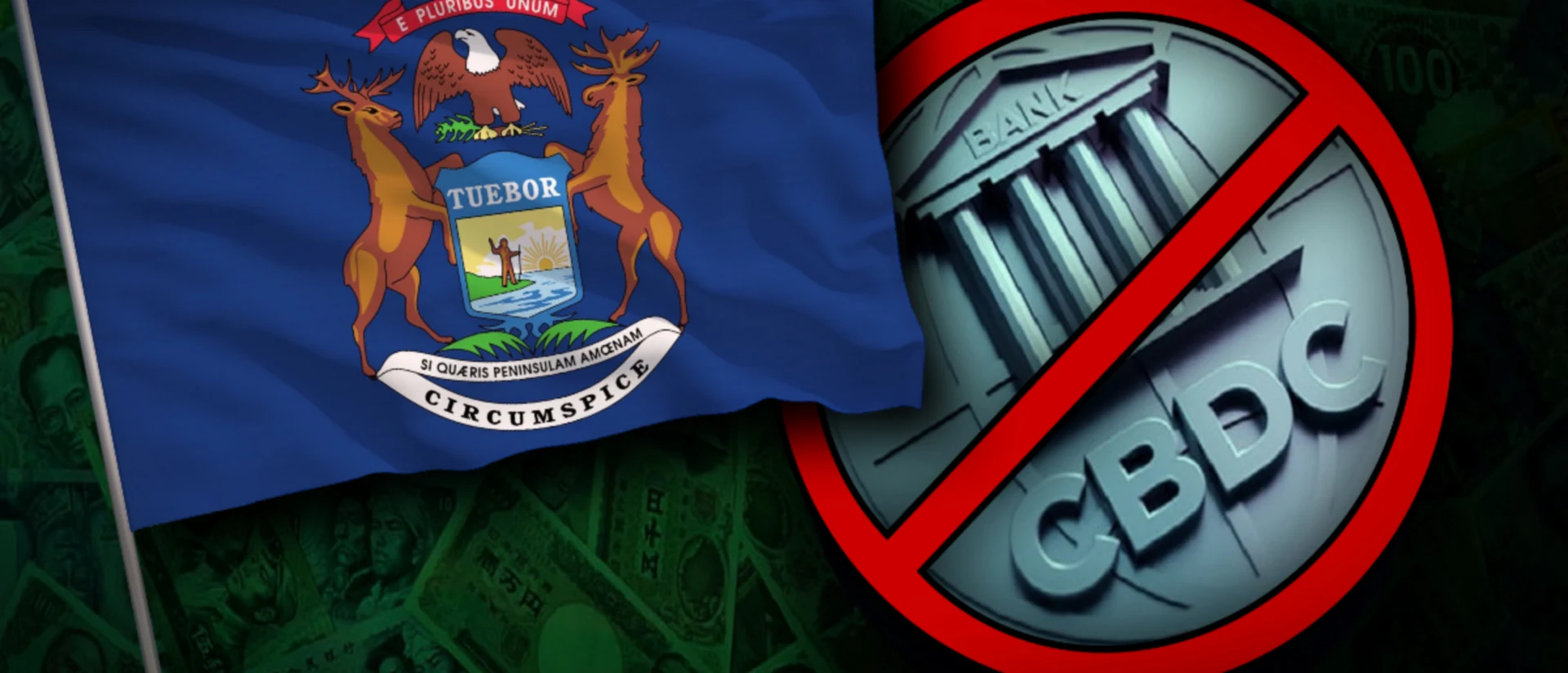by Matt Agorist, The Free Thought Project:

(Tenth Amendment Center) A bill filed in the Michigan House would take the first steps toward limiting the impact of any potential future central bank digital currency (CBDC) in the state.
House Bill 6147 (HB6147) would prohibit a state governmental agency or any political subdivision from accepting a payment using central bank digital currency. It would also bar the same from advocating for or supporting any test of a central bank digital currency.
HB6147 is similar to a law passed in Alabama in 2023 and in Indiana, South Dakota, North Carolina and Georgia in 2024.
TRUTH LIVES on at https://sgtreport.tv/
IN PRACTICE
In the spirit of James Madison’s blueprint in Federalist #46, the enactment of HB6147 would create “impediments” to the implementation of a CBDC in Michigan. Madison said “a refusal to cooperate with officers of the union” along with “the embarrassments created by legislative devices,” would “oppose, in any State, difficulties not to be despised.”
Other states have also taken steps to block the use of CBDCs. Indiana, Florida, South Dakota, Tennessee, and Utah have enacted laws that ban the use of a central bank digital currency (CBDC) as money in the state.
How such legislation will play out in practice against a CBDC, should the federal government attempt to implement one, is unknown.
Opponents of the legislation generally take the position that states can’t do anything to stop a CBDC, since – according to their view – under the supremacy clause “any federal law on this point will automatically override state law.”
We’ve heard this song and dance on other issues before.
In the ramp-up to the 1996 vote on Proposition 215 in California, voters were repeatedly told that legalization of marijuana, even for limited medical purposes, was a fruitless effort, since, under the supremacy clause, any such state law would be automatically overridden by the Controlled Substances Act of 1970 (CSA). At best, opponents told Californians, the state would end up in a costly, and losing court effort.
But despite those warnings, Californians voted yes, setting in motion the massive state-level movement we see today, where a growing majority of states have legalized what the federal government prohibits. Ultimately, the federal government will likely have to back down, even if just to save face, because it has become impossible to fully enforce its federal prohibition over this massive state and individual resistance.
Read More @ TheFreeThoughtProject.com



